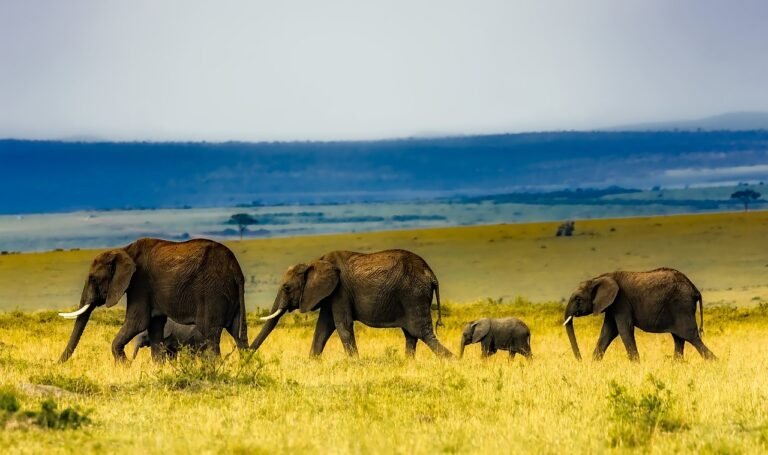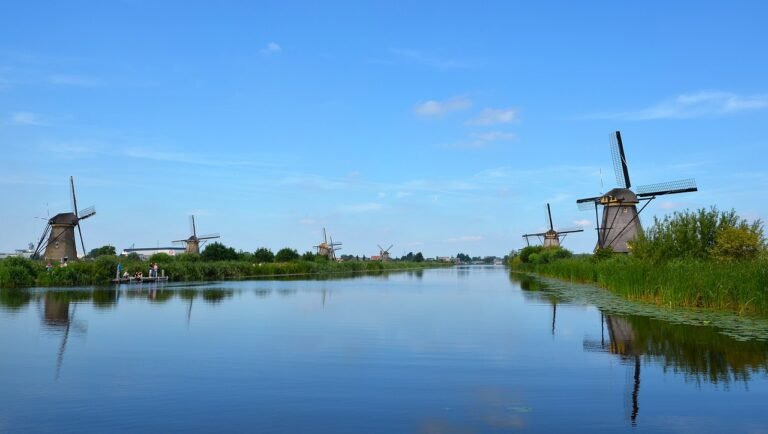How Do Kenyans View Tourism And Its Impact On The Environment?
Kenyans are known for their warm hospitality and friendly nature, making it an ideal destination for tourists from all over the world. With its breathtaking landscapes, diverse wildlife, and vibrant culture, Kenya has long been a popular choice for travelers seeking an authentic African experience. However, as the tourism industry continues to flourish, concerns about its impact on the environment have emerged. This article explores how Kenyans perceive tourism and its implications on their surroundings, shedding light on their perspective and offering insights into the multifaceted relationship between tourism and the environment.
The Importance of Tourism in Kenya
Tourism as a major source of revenue
Kenya is renowned for its breathtaking natural beauty, diverse wildlife, and vibrant cultural heritage, making it a popular tourist destination. Tourism plays a crucial role in the country’s economy, contributing significantly to its revenue. The influx of tourists brings in valuable foreign exchange, boosting Kenya’s economy and helping to support various sectors such as hospitality, transportation, and retail. With its stunning landscapes, national parks, and world-famous wildlife, Kenya offers a unique and unforgettable experience to visitors from around the globe.
Tourism’s contribution to job creation
Not only does tourism bring in revenue, but it also provides employment opportunities for many Kenyans. The tourism industry creates a wide range of jobs, from hotel staff to tour guides, wildlife rangers to souvenir vendors. These jobs, in turn, help to alleviate poverty and improve livelihoods within local communities. The employment opportunities offered by tourism are particularly important in rural areas where alternative sources of income may be limited.
Tourism’s impact on local businesses
Tourism has a significant positive impact on local businesses in Kenya. Small and medium-sized enterprises, such as guesthouses, restaurants, and craft shops, benefit from the presence of tourists in the region. The demand for locally made handicrafts, artwork, and traditional products increases, providing new market opportunities for artisans and entrepreneurs. Additionally, the tourism industry’s supply chain creates opportunities for local farmers and suppliers to provide food, beverages, and other essentials to hotels and lodges. This symbiotic relationship between tourism and local businesses fosters economic growth and contributes to the overall development of communities.
The Positive Perception of Tourism in Kenya
Recognition of the economic benefits
Kenyans recognize and appreciate the economic benefits that tourism brings to the country. Local communities value the revenue generated by tourism as it helps to improve infrastructure, healthcare facilities, and educational systems. The income generated from tourism also provides resources for the conservation of natural areas, safeguarding Kenya’s unique ecosystems for future generations. Kenyans understand that a thriving tourism industry is essential for economic growth and improving the quality of life for all.
Appreciation of cultural exchange
Tourism in Kenya provides an opportunity for cultural exchange between locals and visitors, fostering mutual understanding and appreciation. Visitors have the chance to immerse themselves in local traditions, customs, and cuisine, gaining a deeper understanding of Kenya’s rich cultural heritage. In return, Kenyans are proud to share their traditions and showcase their artistic talents through music, dance, and storytelling. This cultural exchange promotes goodwill and harmony, creating a sense of unity among people from different backgrounds.
Promotion of national pride
Tourism also plays a crucial role in promoting national pride among Kenyans. The pride in their country’s natural wonders, wildlife, and vibrant culture is reinforced when tourists express admiration and awe for Kenya’s attractions. This validation of their heritage instills a sense of pride and appreciation in Kenyans. Furthermore, the tourism industry provides opportunities for local artisans, performers, and entrepreneurs to showcase their talents and products, bolstering national pride and a sense of cultural identity.
The Negative Perception of Tourism in Kenya
Concerns over environmental degradation
While tourism brings numerous benefits, some Kenyans have concerns about the potential negative impact on the environment. The rapid growth of tourism can lead to increased pollution, waste generation, and the degradation of natural habitats. The improper disposal of waste, including plastic pollution, can harm Kenya’s fragile ecosystems and threaten the health of wildlife. It is essential for the government and the tourism industry to address these concerns through sustainable practices and responsible tourism initiatives.
Exploitation of local resources
There is also a negative perception regarding the exploitation of local resources by the tourism industry. Some Kenyans feel that the revenue generated from tourism does not always benefit local communities or contribute to their long-term development. The uncontrolled development of tourist infrastructure, such as hotels and resorts, can lead to the displacement of local communities and the loss of access to their traditional lands and resources. It is vital to ensure that tourism development is carried out in a sustainable manner, respecting the rights and needs of local communities.
Negative effects on traditional livelihoods
Traditional livelihoods, such as farming and fishing, can be negatively impacted by the growth of tourism. As more land is allocated for tourism infrastructure, the availability of land for agriculture diminishes, affecting the livelihoods of farmers. Similarly, increased demand for seafood by tourists can deplete fish stocks and disrupt the balance of marine ecosystems, affecting the livelihoods of fishermen. It is crucial to strike a balance between tourism development and preserving traditional livelihoods to ensure sustainable and inclusive growth.
Environmental Impact of Tourism in Kenya
Deforestation and habitat destruction
One of the significant environmental challenges associated with tourism in Kenya is deforestation and habitat destruction. The construction of hotels, resorts, and access roads often involves clearing large areas of forests, leading to the loss of crucial habitats for wildlife. Deforestation also contributes to soil erosion, disrupts water cycles, and reduces the resilience of ecosystems to climate change. To mitigate these impacts, it is crucial for the government and tourism industry to prioritize sustainable construction practices and reforestation initiatives.
Water pollution and scarcity
Tourism can also pose a risk to water resources in Kenya. The improper disposal of waste, including untreated sewage, can contaminate rivers, lakes, and coastal areas, posing a threat to both human health and aquatic ecosystems. Additionally, the increased water demand from hotels and tourist facilities can strain local water supplies, especially in arid regions. Sustainable water management practices, such as water recycling and conservation, are essential to minimize the negative impact of tourism on water resources.
Threats to wildlife and conservation
Kenya’s wildlife is a significant draw for tourists, but the presence of tourists can also pose risks to the very animals they come to see. In popular wildlife areas, the increased human activity can disrupt animal behaviors and habitats, leading to stress and potential harm to the wildlife population. Tourists may also engage in activities that are detrimental to wildlife, such as feeding or getting too close to animals. Strict regulations, responsible tourism guidelines, and effective enforcement are necessary to safeguard wildlife and protect their natural habitats.
Community Perspectives on Tourism and Environment
Communities’ reliance on natural resources
Many local communities in Kenya rely on natural resources for their livelihoods, such as food, firewood, and medicinal plants. Tourism can have both positive and negative effects on these communities. On the one hand, increased tourism can provide new economic opportunities and alternative sources of income. On the other hand, if not properly managed, tourism can lead to the overexploitation of natural resources, depriving local communities of their essential lifelines. It is crucial to involve local communities in decision-making processes and ensure their involvement and benefit sharing in tourism initiatives.
Recognition of the need for sustainable practices
Communities living in close proximity to tourism destinations are often the first to witness the environmental changes and negative impacts associated with tourism. As a result, there is a growing recognition among these communities of the need for sustainable practices in tourism. Initiatives such as community-led conservation efforts, sustainable farming practices, and responsible tourism ventures have emerged to balance economic development and environmental preservation. The involvement of local communities in sustainable tourism practices helps ensure a more harmonious relationship between tourism and the environment.
Involvement in conservation initiatives
Community engagement in conservation initiatives is vital to the long-term sustainability of Kenya’s natural heritage. Many communities have taken an active role in wildlife conservation, contributing to the establishment of conservancies and community-owned wildlife reserves. These initiatives provide economic incentives for communities to protect wildlife habitats and discourage illegal activities such as poaching. By involving local communities in conservation efforts, tourism can foster a sense of ownership and responsibility, ensuring the preservation of Kenya’s unique biodiversity for future generations.
Government Initiatives and Policies
National parks and protected areas
The Kenyan government recognizes the importance of preserving its natural heritage and has created a network of national parks and protected areas. These protected areas serve as sanctuaries for wildlife and habitats, allowing tourists to experience Kenya’s biodiversity while ensuring the conservation of these fragile ecosystems. The government’s commitment to expanding and maintaining these protected areas demonstrates its understanding of the role tourism plays in promoting environmental conservation.
Environmental regulations and enforcement
To mitigate the negative impacts of tourism on the environment, the Kenyan government has implemented environmental regulations and enforcement mechanisms. These measures ensure that tourism operators adhere to sustainable practices and minimize harm to natural resources. Environmental impact assessments and periodic audits of tourism facilities are carried out to monitor compliance with regulations. Effective enforcement of these regulations helps prevent environmental degradation and encourages responsible tourism practices.
Promotion of eco-tourism
The government of Kenya actively promotes eco-tourism as a sustainable form of tourism that minimizes its impact on the environment and benefits local communities. Eco-tourism emphasizes responsible travel practices, conservation awareness, and community involvement. The government provides support and incentives for tourism operators to adopt eco-friendly practices, such as using renewable energy, reducing waste, and supporting local conservation initiatives. Through these efforts, the government aims to position Kenya as a global leader in eco-tourism and attract environmentally conscious tourists.
Tourism Industry Efforts for Environmental Conservation
Adoption of sustainable practices
The tourism industry in Kenya has recognized the importance of environmental conservation and the need for sustainable practices. Many tour operators, hotels, and lodges have taken steps to reduce their ecological footprint by implementing energy-saving measures, waste management systems, and water conservation practices. Some establishments have even embraced eco-certifications, ensuring that they meet stringent sustainability standards. The adoption of sustainable practices by the tourism industry demonstrates its commitment to preserving Kenya’s natural beauty for future generations.
Partnerships with local communities
The tourism industry understands the value of collaborating with local communities to promote environmental conservation. This has led to the establishment of partnerships between tourism operators and community-based initiatives. By involving local communities in the decision-making process and revenue sharing, these partnerships ensure that the benefits of tourism reach the grassroots level. Engaging local communities in sustainable tourism practices fosters a sense of ownership and responsibility, strengthening the bond between tourism and the environment.
Support for conservation organizations
The tourism industry in Kenya actively supports various conservation organizations and initiatives. Many tourism operators contribute financially to conservation projects, wildlife rehabilitation centers, and research programs. By partnering with these organizations, the tourism industry plays a vital role in funding the conservation of Kenya’s unique biodiversity. Additionally, tourism operators often collaborate with conservation organizations to educate tourists about environmental issues and promote responsible tourism practices.
Education and Awareness in Tourism and Environment
Importance of environmental education
Education and awareness are essential in promoting sustainable tourism practices and protecting the environment in Kenya. Many organizations and educational institutions offer environmental education programs that aim to educate both locals and tourists about the importance of preserving ecosystems, minimizing waste, and respecting wildlife. By raising awareness about these issues, it is hoped that individuals will make more informed choices and take actions that contribute to the conservation of Kenya’s natural resources.
Training for tourism industry professionals
To ensure the adoption of sustainable practices throughout the tourism industry, training programs for tourism professionals are crucial. These programs provide industry-specific knowledge and skills related to environmental conservation, responsible tourism, and resource management. By equipping tourism professionals with the necessary tools, they can play an active role in promoting sustainable tourism practices and making informed decisions that minimize environmental impacts.
Campaigns to raise awareness
Various campaigns and initiatives have been launched to raise public awareness about the importance of tourism and its impact on the environment. These campaigns often involve collaborations between government bodies, non-governmental organizations, and the tourism industry. Through educational campaigns, social media, and public events, these initiatives aim to engage both locals and tourists in sustainable practices, encouraging them to be responsible travelers and stewards of the environment.
The Role of Tourists in Promoting Environmental Conservation
Choosing responsible tourism operators
As a tourist, you have the power to make an impact by choosing responsible tourism operators who prioritize environmental conservation. Before booking any tours or accommodations, research the company’s sustainability initiatives, such as their waste management practices, support for local communities, and commitment to wildlife conservation. By supporting responsible tourism operators, you can contribute to the preservation of Kenya’s natural resources and promote sustainable practices within the tourism industry.
Respecting local cultures and traditions
When visiting Kenya, it is important to respect local cultures and traditions. Engage with the local community in a respectful and culturally sensitive manner, understanding and abiding by their customs and etiquettes. By respecting local cultures, you contribute to the preservation of cultural heritage and foster positive relationships between tourists and locals. Cultural exchange and understanding are integral components of sustainable tourism.
Supporting conservation efforts
Consider supporting conservation efforts during your visit to Kenya. Many conservation organizations and community initiatives rely on donations and volunteer support to carry out their work. By contributing to these efforts, you directly contribute to the conservation and protection of Kenya’s wildlife, habitats, and cultural heritage. Whether through financial donations, volunteering, or participating in conservation programs, your support can have a meaningful impact.
Challenges and Future Perspectives
Balancing economic growth and environmental preservation
A significant challenge facing tourism in Kenya is striking a balance between economic growth and environmental preservation. As the demand for tourism continues to grow, there is a need to ensure that development is sustainable and does not compromise the integrity of Kenya’s natural resources. By incorporating sustainable practices into tourism development and enforcing regulations, Kenya can continue to enjoy the economic benefits of tourism while safeguarding its unique biodiversity and ecosystems.
Addressing poverty and inequality
Tourism has the potential to uplift communities and alleviate poverty, but it is essential that the benefits are distributed equitably. Inclusive growth is key to ensuring that local communities have access to the economic opportunities created by tourism. Efforts should be made to bridge the gap between the tourism industry and local communities through revenue-sharing models and capacity-building initiatives. By addressing poverty and inequality, Kenya can harness the full potential of tourism as a driver of sustainable development.
Embracing sustainable tourism practices
The future of tourism in Kenya lies in embracing sustainable practices across all levels of the industry. The government, tourism operators, and tourists themselves all have a role to play in promoting responsible and sustainable tourism. By adopting eco-friendly practices, conserving natural resources, and supporting local communities, Kenya can position itself as a global leader in sustainable tourism. With the right strategies and collective efforts, Kenya can continue to thrive as a premier tourist destination while preserving its natural heritage for generations to come.







